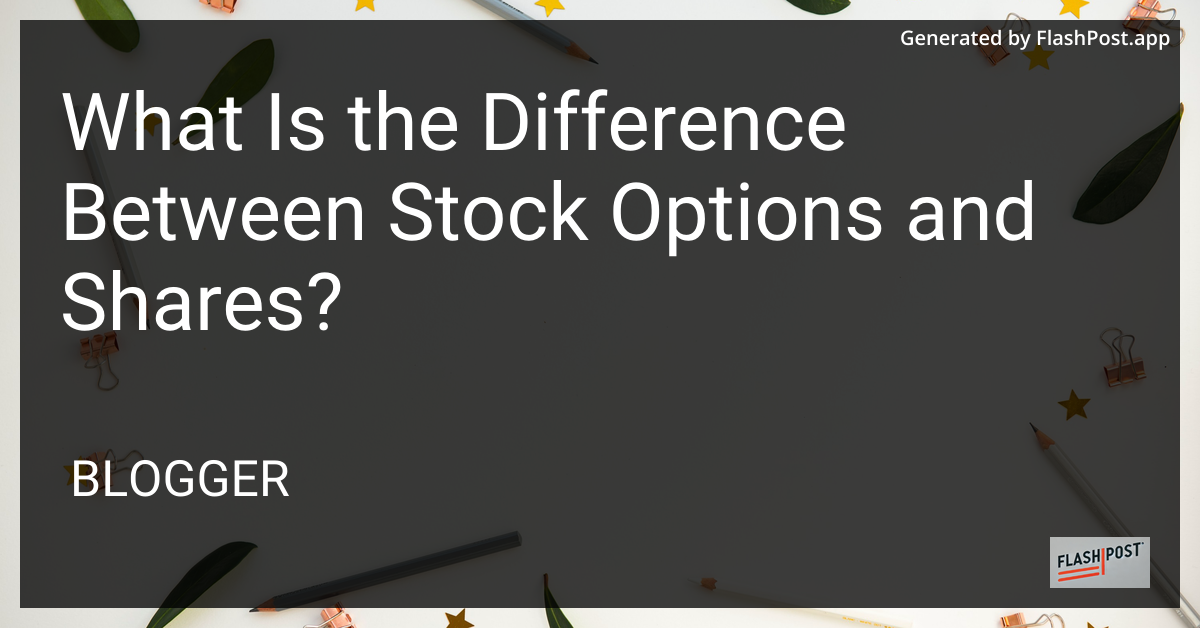What Is the Difference Between Stock Options and Shares?

Understanding the Difference Between Stock Options and Shares
When delving into the world of investing and equity, two terms often surface that can cause confusion: stock options and shares. While they are related to company ownership and financial markets, they carry distinct characteristics and benefits. Below, we’ll demystify these investment vehicles.
What Are Stock Options?
Stock options are financial contracts that grant the right, but not the obligation, to buy or sell a stock at a predetermined price (the strike price) within a specific timeframe. Typically issued by companies to employees, stock options serve as an incentive and a tool for retaining talent by potentially offering financial growth based on company performance.
There are two main types of stock options:
- Call Options: Provide the right to purchase shares at a specific price.
- Put Options: Offer the right to sell shares at the agreed price.
These options can be a powerful tool for speculating on stock movements or for ensuring a risk management strategy. Investors interested in advanced strategies might explore using obv stocks indicators to enhance their decision-making process.
What Are Shares?
Shares, also known as stocks or equities, represent ownership in a corporation. When you purchase shares in a company, you effectively own a piece of that firm. This entitles you to a portion of the company’s assets and profits, proportionate to your holdings. Shares can be acquired by any investor through stock exchanges, facilitating a means for companies to raise capital and for investors to potentially benefit from dividends and capital gains.
Shares come in two primary forms:
- Common Shares: Offer voting rights and dividends (if declared).
- Preferred Shares: Usually come with fixed dividends but may not provide voting rights.
Investors aiming to build a diversified portfolio may want to learn more about choosing stocks and short interest stocks as part of their research process.
Key Differences Between Stock Options and Shares
- Ownership vs. Potential Ownership: Shares represent actual ownership in a company, while stock options provide the right to purchase shares under specific conditions.
- Valuation: Shares have a market price determined by supply and demand. In contrast, stock options derive their value from the underlying stock’s price and other factors like volatility and time to expiration.
- Risk Level: Purchasing shares involves direct risk tied to the company’s performance. Stock options, while theoretically less risky due to limited initial outlay, can be highly speculative.
- Purpose: Companies issue shares to raise immediate capital. Stock options are typically used to incentivize employees or as hedging instruments.
In conclusion, understanding the fundamental differences between stock options and shares is crucial for any investor or employee involved with equity compensation. Both instruments can play significant roles in an investment journey, offering unique benefits and risks. Aspiring investors must carefully evaluate their financial goals, risk appetite, and market knowledge to harness these tools effectively.
”`
This article is optimized with relevant keywords and aligns with the requested SEO structure.
Comments
Post a Comment